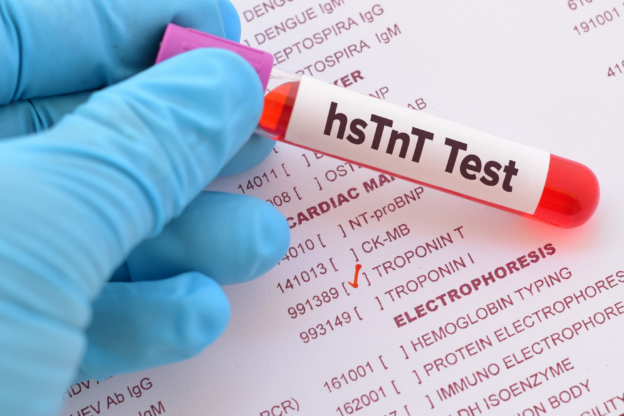Instructor
Elizabeth Lee-Lewandrowski, PhD, MPH
Massachusetts General Hospital
Harvard Medical School
Research Director of Invisible International
Description
This course gives an overview of a 2022 study that measured high-sensitivity troponin T in patients with early Lyme disease, and demonstrates that the causative bacteria of Lyme disease, Borrelia burgdorferi, may cause abnormal issues to the heart more often than previously thought, affecting 14.6% of these patients in the study. Troponin is a complex of three proteins (troponin T, I, and C) that regulate muscle contractions in the heart. When the heart is damaged, these proteins are released into the bloodstream, allowing clinicians to measure levels to determine the extent of heart damage. Previously, the Centers for Disease Control and Prevention reported that Lyme carditis occurs only in about 1% of Lyme disease cases (2008 to 2017). This newer study of 41 early Lyme patients used the high sensitivity troponin T test and found that 14.6% had elevated troponin T levels, suggesting that the heart is damaged in more early Lyme disease cases than previously realized. While there are many explanations for elevated troponin levels in these patients, including a systemic inflammatory response, this result raises the question that subclinical cardiac involvement may be more common than previously recognized.
Learning objectives
- Review current understanding of cardiac involvement in early Lyme disease
- Describe measurement of high sensitivity troponin T in early Lyme disease
- Review causes for an elevated high sensitivity troponin T in the absence of acute coronary syndrome
This session, Measurement of high sensitivity troponin T in patients with early-stage Lyme disease: possible evidence for subclinical cardiac involvement, is approved for 0.25 enduring AAFP Prescribed credits.
AAFP Prescribed credit is accepted by the American Medical Association as equivalent to AMA PRA Category 1 credit(s)™ toward the AMA Physician’s Recognition Award. When applying for the AMA PRA, Prescribed credit earned must be reported as Prescribed, not as Category 1.
The AAFP has reviewed One Health Medical Education for a Changing Climate and deemed it acceptable for AAFP credit. Term of approval is from 01/02/2024 to 01/01/2025. Physicians should claim only the credit commensurate with the extent of their participation in the activity.
References
Elizabeth Lee-Lewandrowski, PhD, MPH (1,2,3), Kent B. Lewandrowski, MD (1,2)
From: Department of Pathology, Division of Clinical Laboratories and Molecular Medicine, Massachusetts General Hospital (1) Harvard Medical School (2) and Research Director Invisible International (3)


